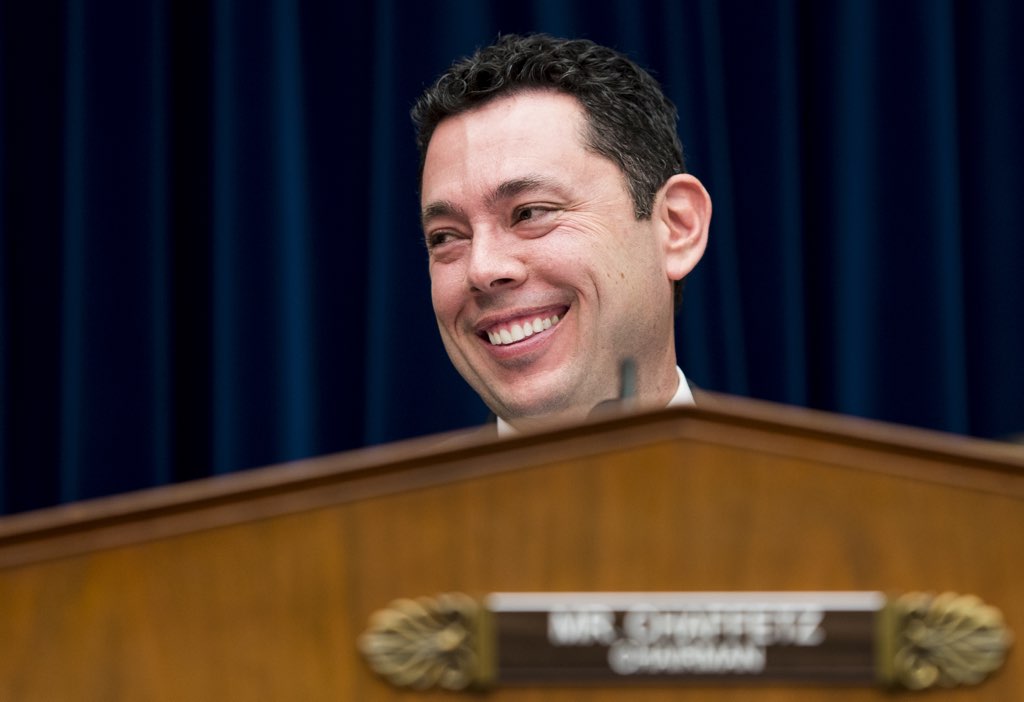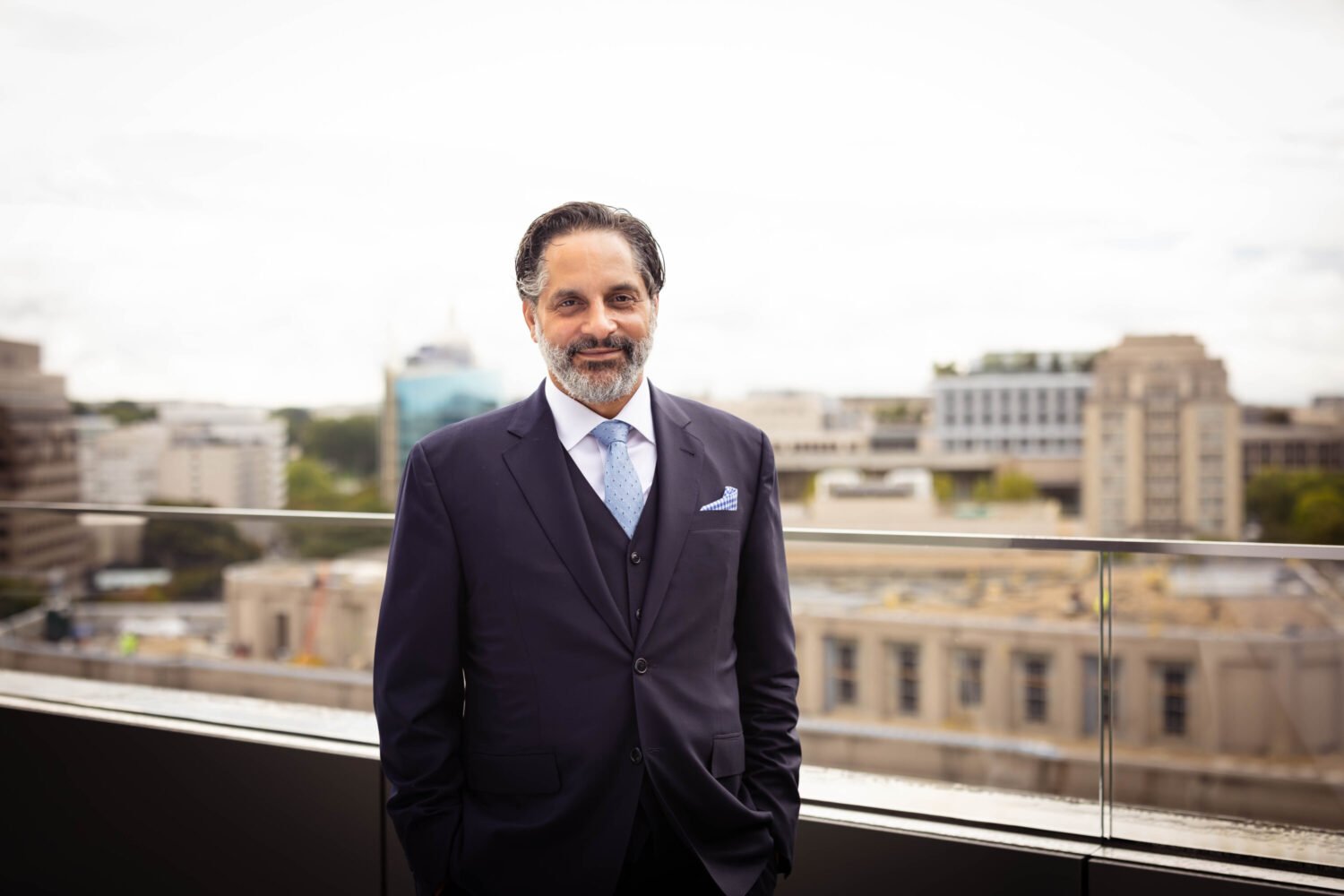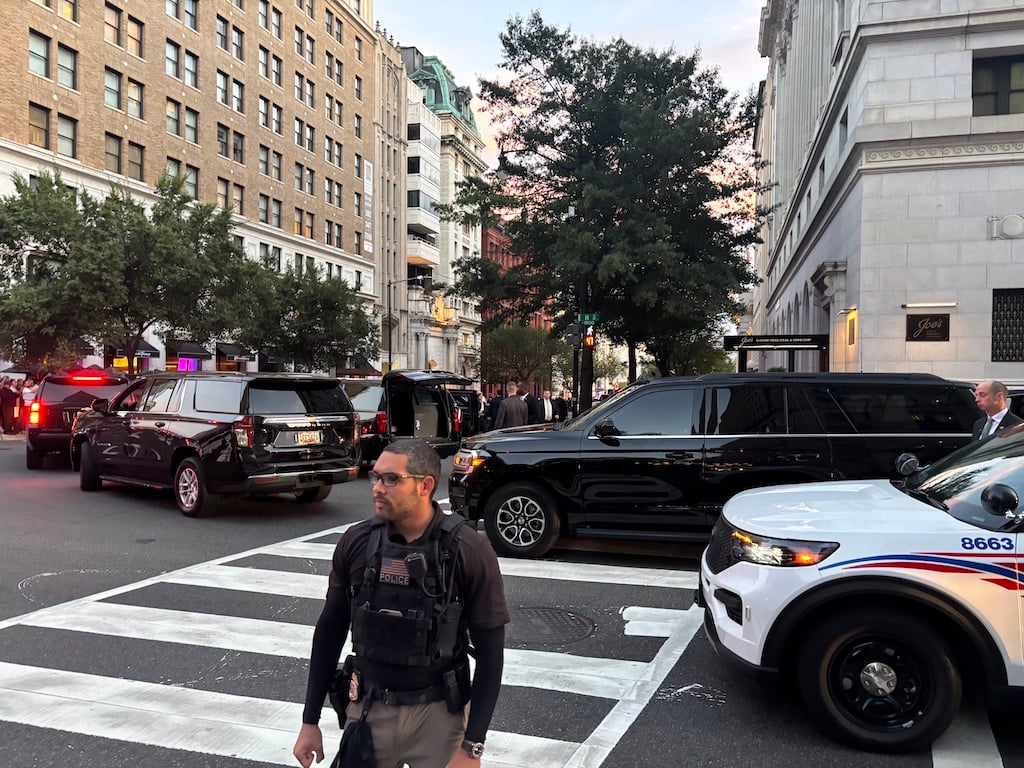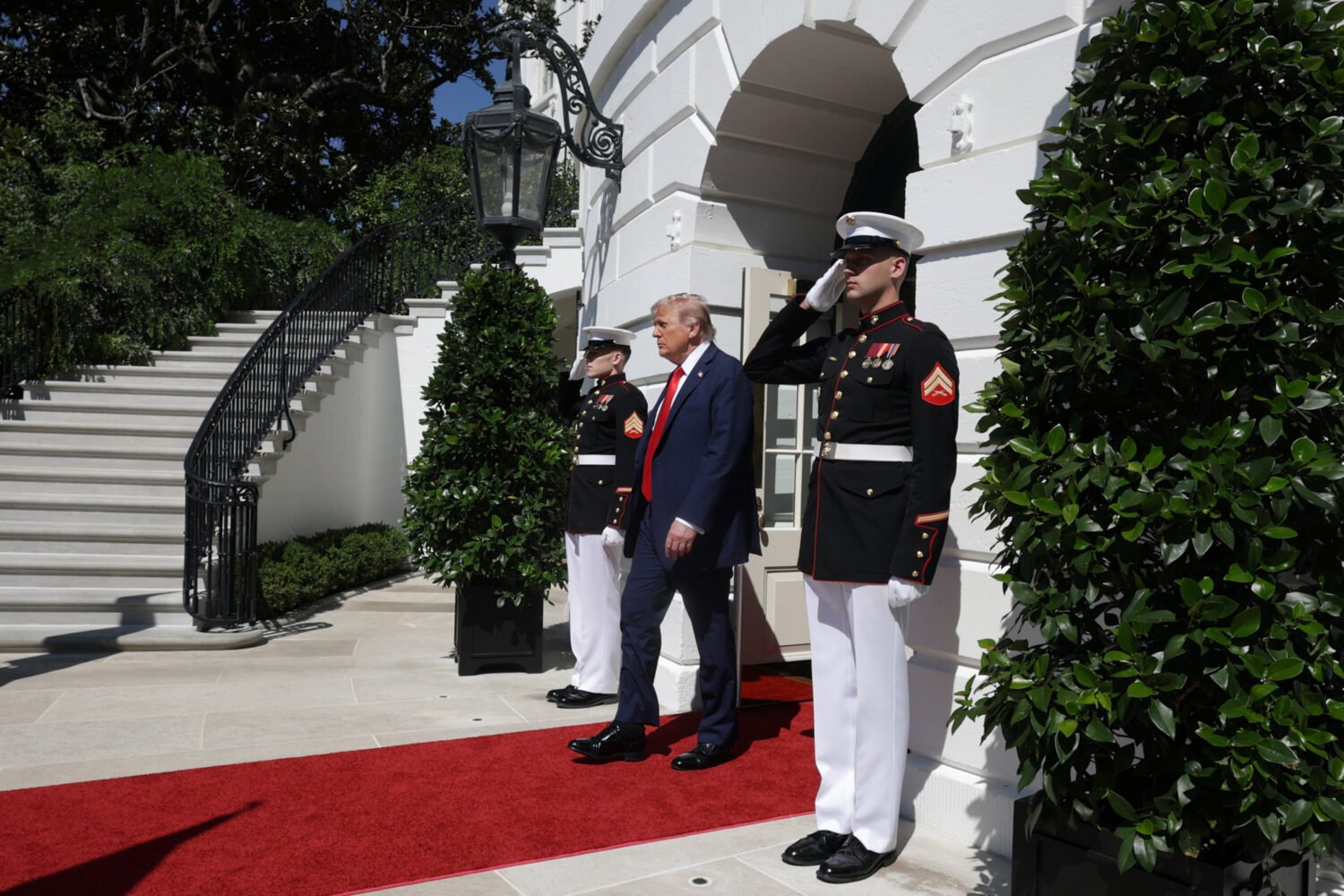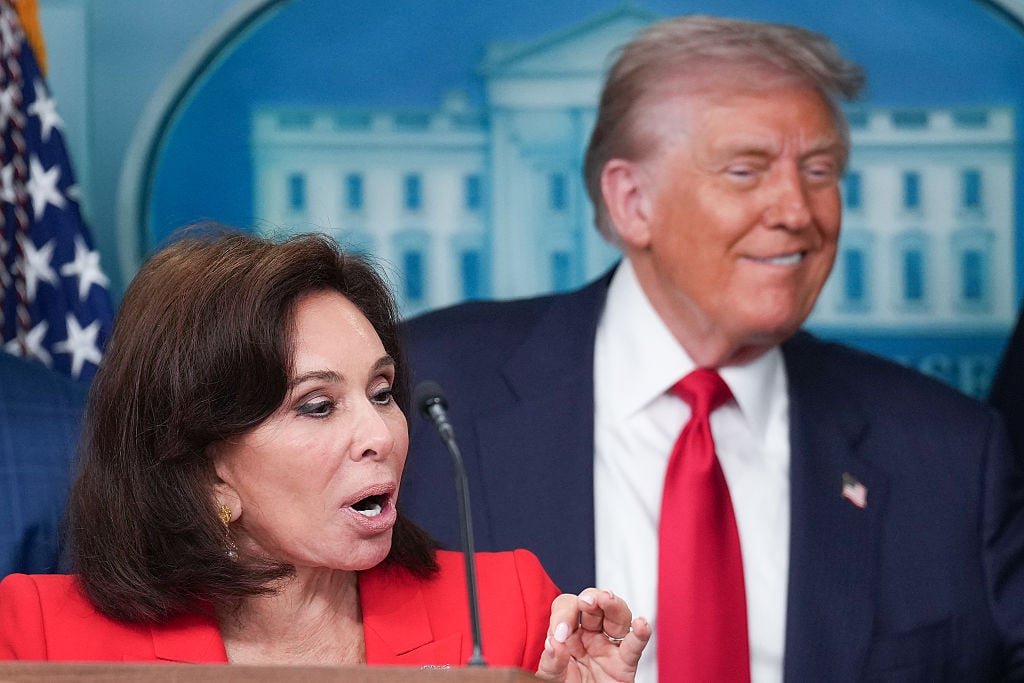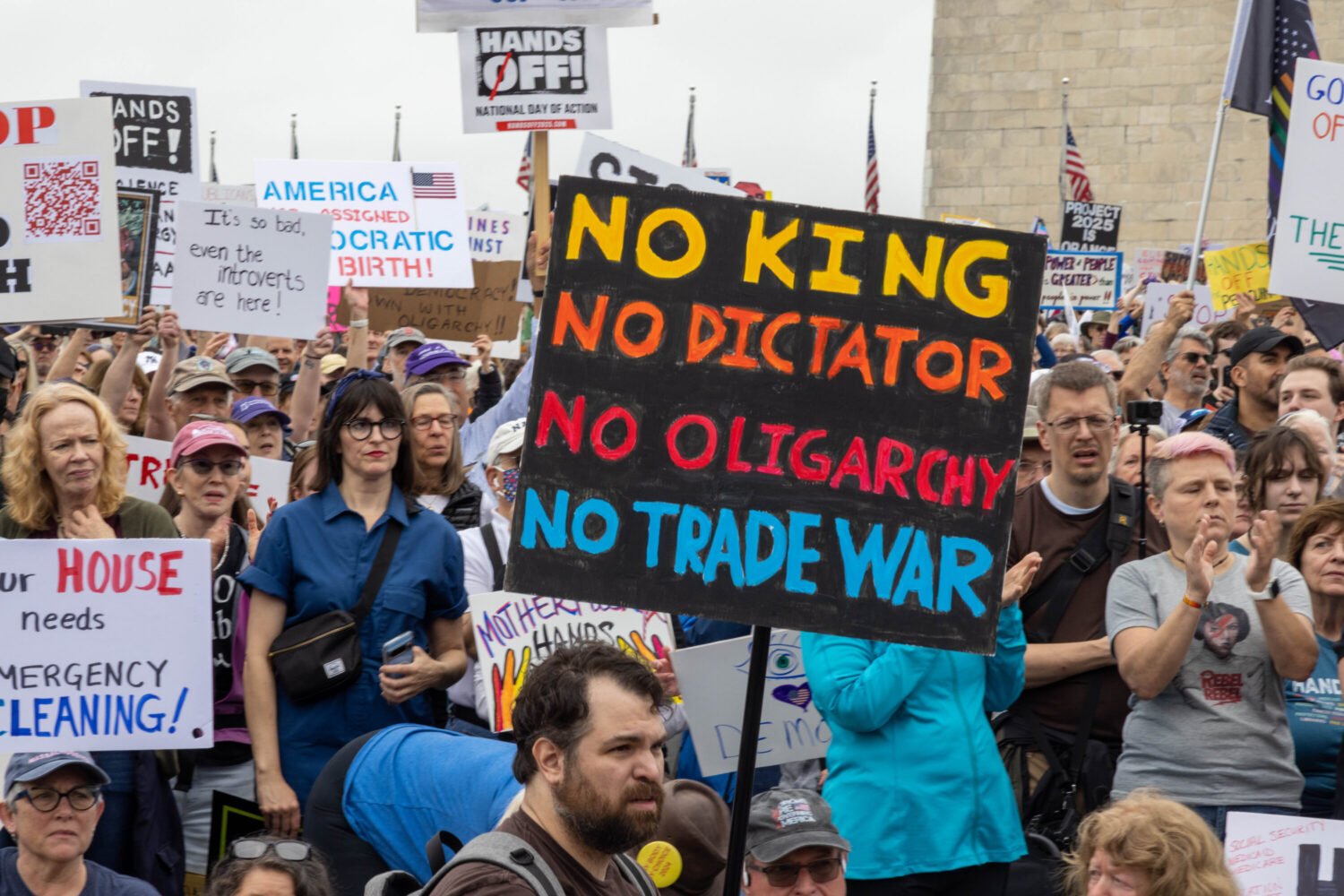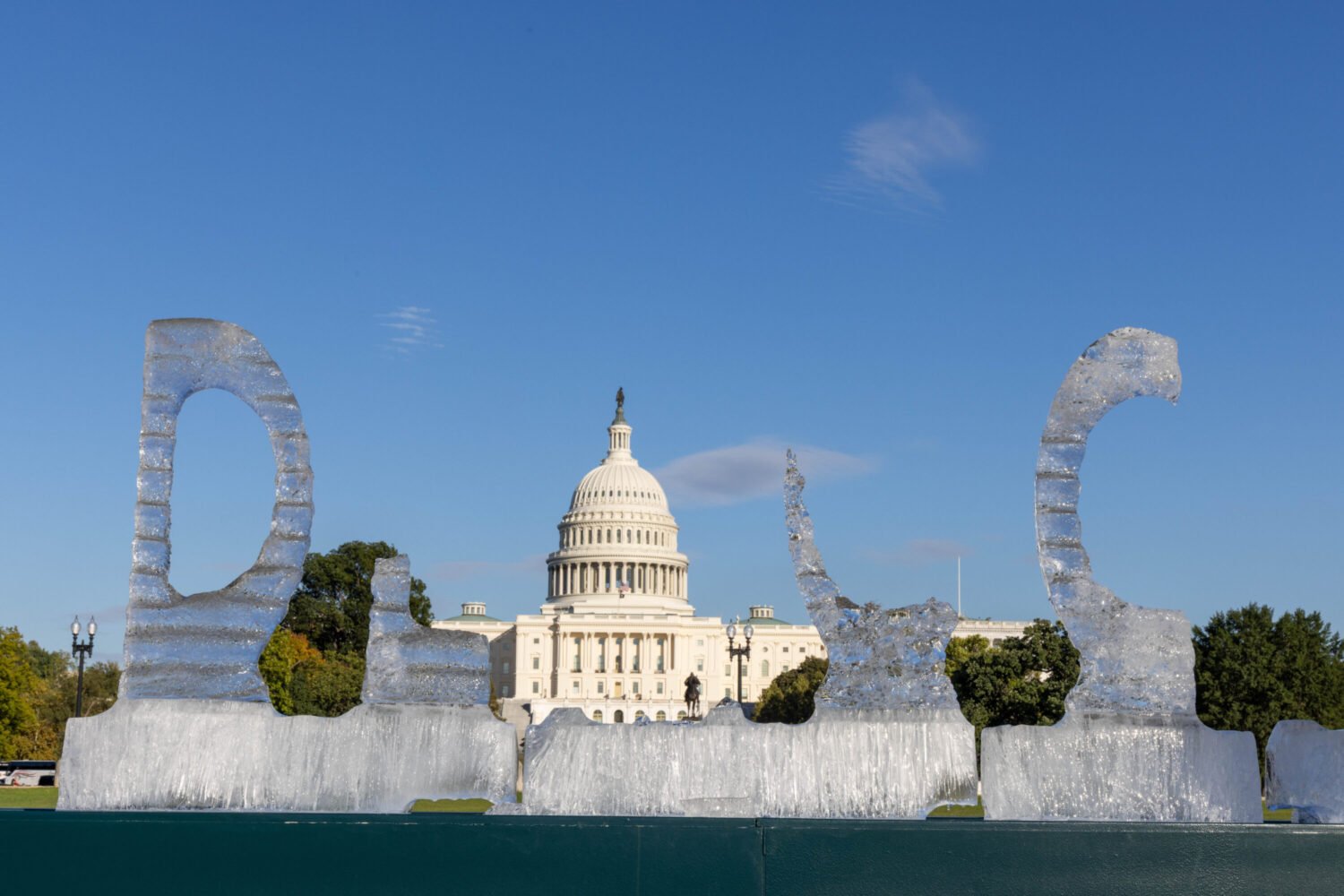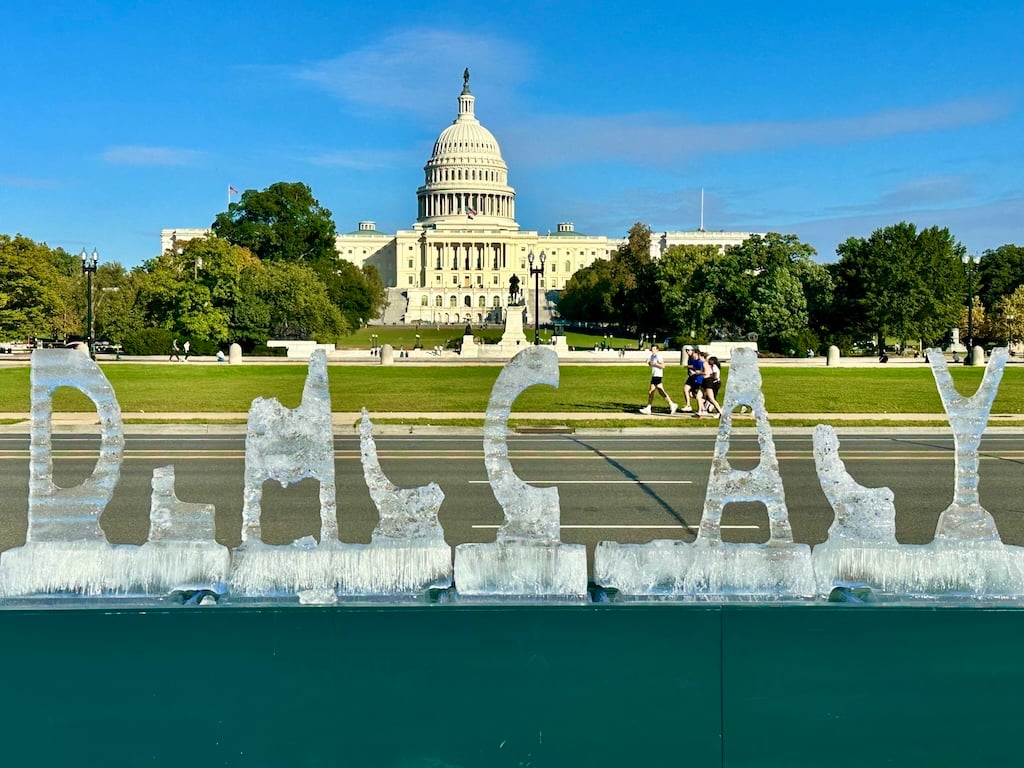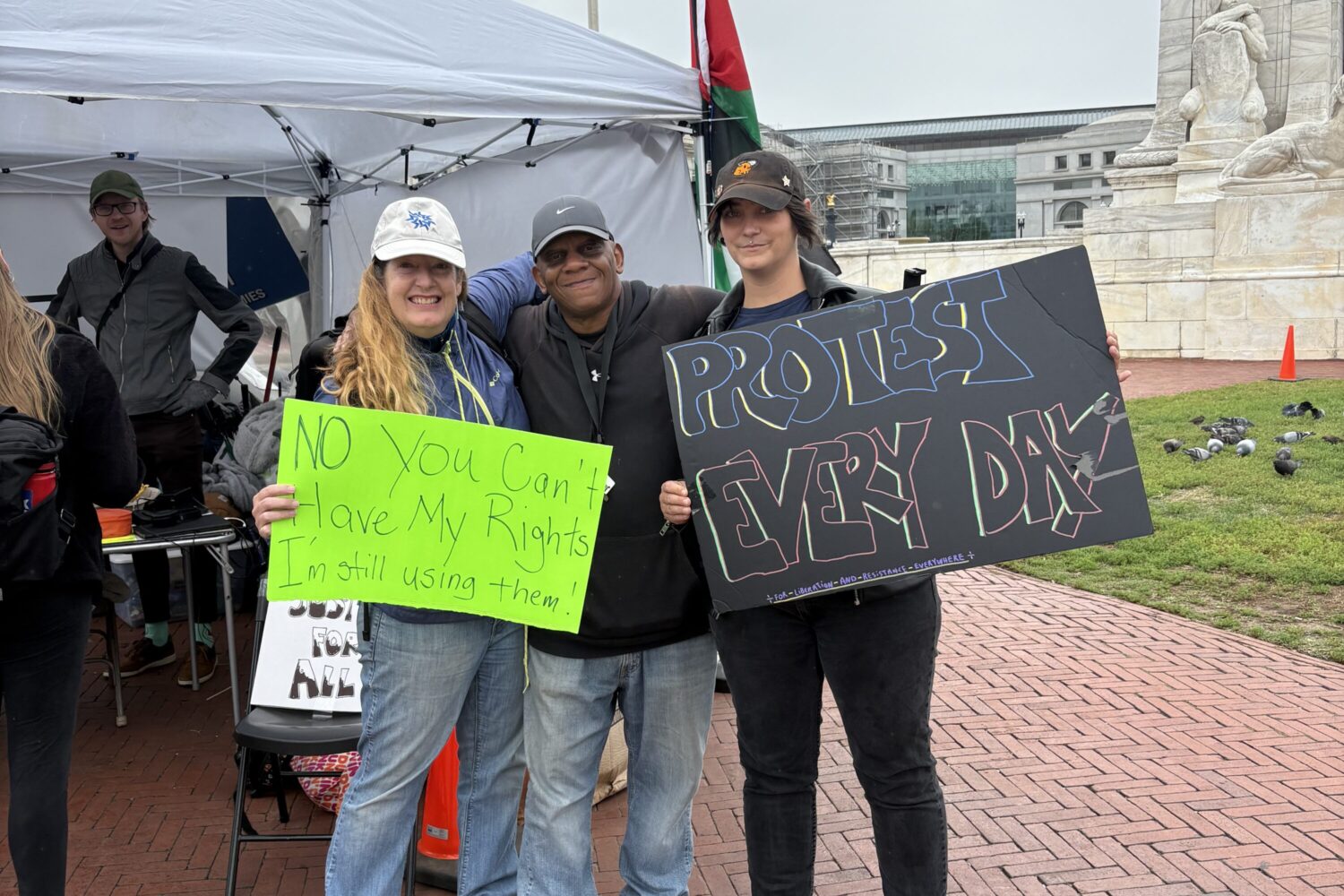As chairman of the House Oversight Committee, Jason Chaffetz is nominally responsible for investigating misdeeds and errors committed by the executive branch. So, it should’ve been a bit puzzling that when he was asked Tuesday if he plans to root around the Russian connections that led Michael Flynn to step down as President Trump‘s national security adviser, Chaffetz demurred.
“It’s taking care of itself,” Chaffetz told reporters.
But that’s the kind of response to expect from Chaffetz these days. The Utah Republican has been one of Trump’s biggest enablers in Congress, taking a wait-and-see-and-wait-some-more approach to the administration. Instead, he appears to have spent the bulk of his time recently on his committee’s role in reviewing the actions of the DC government, specifically its ability to overturn city laws with which it disagrees.
On Monday evening, as Flynn was preparing to resign, the Oversight Committee voted almost entirely along party lines to strike down the District’s recently approved law allowing terminally ill patients to seek physician-assisted suicide. Chaffetz promised to do as much in a Washington Post op-ed he wrote last month with the Heritage Foundation Jim DeMint, so yesterday’s vote does not come as any surprise. But carrying out his role as DC’s constitutionally dictated scold and so quickly following it up with a refusal to investigate what NBC News calls “arguably the biggest scandal involving a foreign government since Iran-Contra” just reveals that Chaffetz is far more willing to do the easy part of his job than the hard stuff.
In fairness to Chaffetz, he has said that his Mormon faith led him to oppose the assisted-suicide law. But since taking the chairman’s gavel in 2015, and especially since Trump’s election, he has also been far more eager to meddle with the District’s internal affairs than he has to investigate executive-branch Republicans behaving badly. When Mayor Muriel Bowser announced plans to create a legal-defense fund to help illegal immigrants who might be targeted by Trump Administration policies—as other major cities have done—Chaffetz was quick to call it a violation of federal law and launch an investigation. And it’s not just on the stuff precious to Trump. The Oversight Committee’s adopted agenda for the current Congress pledges greater scrutiny of the DC government, including on how the city handles welfare, health care, transportation, gun control, and potentially anything else.
The politics of these moves are obvious. With Republican majorities in both houses of Congress and Barack Obama no longer around to veto GOP meddling, Chaffetz can pick on DC to score easy wins for himself and his co-partisans. By knocking back the assisted-suicide law, he can claim to have done something morally upstanding, even when constituents back home in Cottonwood Heights jeer him at public meetings for not examining the Trump White House’s affairs with even half the ferocity he applied to Obama-era situations like the deaths of four US officials at the consulate in Benghazi, Libya. And his response that people who protest him are “paid” by some unseen hand is just in keeping with the White House’s line that opposition to the Republican agenda.
Launching an investigation of Flynn’s connections to the Russian government, however, would take real spine on Chaffetz’s part. He’d risk incurring the wrath of Trump’s Twitter fingers and maybe even his fellow members of Congress. Instead, he’s taking a pass. Oversight Democrats say if Chaffetz isn’t up to it, they’d like to investigate Flynn, but as the minority party, they lack subpoena power. But Chaffetz, the one who does have that authority, is letting this one go while he celebrates squashing the will of a city he doesn’t represent. He recently told the Washington Post‘s Paul Schwartzman that he’s “leaning toward” running for governor of Utah in 2020. Maybe the plan is to coast until then.

